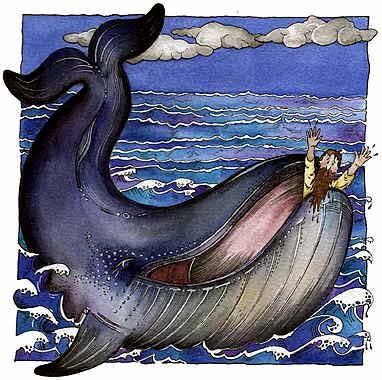Giving Thanks, Despite . . .
A lot of people (I may have been one of them) have bemoaned the fact that 2020 has been a horrible year. A pandemic that has taken thousands of lives, civil unrest, violence in the streets, political discord and contention (worse than usual, it would seem). There’s not much that has said, Let’s give thanks for THAT.
Interestingly, the Bible doesn’t seem to qualify the idea of thanks or thanksgiving to “only things that are beneficial.” Instead, while the apostle Paul sat in prison, he wrote,
Rejoice in the Lord always; again I will say, rejoice! Let your gentle spirit be known to all men. The Lord is near. Be anxious for nothing, but in everything by prayer and supplication with thanksgiving let your requests be made known to God. And the peace of God, which surpasses all comprehension, will guard your hearts and your minds in Christ Jesus. (Phil. 4:4-7—emphases are mine)
 Centuries before, the prophet Jonah, on the third day of his ordeal in the stomach of a great fish, prayed
Centuries before, the prophet Jonah, on the third day of his ordeal in the stomach of a great fish, prayed
But I will sacrifice to You
With the voice of thanksgiving.
That which I have vowed I will pay.
Salvation is from the LORD.” (Jon. 2:9)
There are many other such passages, none clearer that 1 Thess. 5:18: “in everything give thanks; for this is God’s will for you in Christ Jesus.”
All this has me thinking about thanksgiving in stories. Is thanksgiving a common theme? Are there stories in the speculative genres that show thanksgiving as a desired end? I mean, I can think of stories about sacrifice and enduring hardship and staying true and standing firm and other such significant topics. But I’m not aware of one which shows primarily the importance of a heart of gratitude.
A quick search uncovers a number of children’s stories about gratitude, but in the realm of fantasy, it would seem that there’s an inclination against thanksgiving, at least when a fairy or fae is involved. That’s the “standard” understanding of fairy etiquette, it would seem. For an excellent discussion of the subject see “Gratitude, Thanks, and Fairy Etiquette” posted at Writing in Margins, May 25,2020.
Where are the adult stories? Do we think that gratitude is a “minor” virtue, not something worthy of the full force of a story? Do we understand thankfulness as something kids need to learn, that adults have mastered? Do we see gratefulness as a trivial part of etiquette?
I suspect that as society downplays thanksgiving, so do writers. I mean, a Christian radio station in our area has made available a channel on their app for Christmas music. So far I have heard no word about Thanksgiving Day or anything special to celebrate it. My church has announced the plans to replace our usual Christmas celebration events, but no word about Thanksgiving Day.
If Christians are overlooking Thanksgiving, no wonder the secular society here in the US refers to it as “Turkey Day,” a day for family, food, and football.
So why should writers create stories that value thanksgiving when society apparently has deemed it something for children, a polite nicety, but not a necessity? I suggest Christian writers would be wise to value what God values and to write “against the culture” as necessary.
Against culture? Yes! Culture doesn’t need an echo chamber. Culture needs stories that challenge our assumptions. I can see speculative literature in particular standing against the norm, if for no other reason than an author can invent a world that either values gratitude more than we do, or, as in the accepted view of the fae, holds it in disregard.
Simply by making gratitude an issue, a story can influence and affect readers.
But maybe I’m wrong. Are there stories for adults, particularly in the last twenty years or so, that elevate gratitude, that make this quality a central piece?
Featured photo by Johannes Plenio from Pexels






























I hadn’t thought of how referring to it as Turkey Day takes away it’s original meaning, but you’re correct.
Now, I kind of want to see a story about Thanksgiving.
And I kind of mean lower case thanksgiving, not the specific American holiday thanksgiving.
That’s cool, Ticia. I’d like to read one, too.
Becky